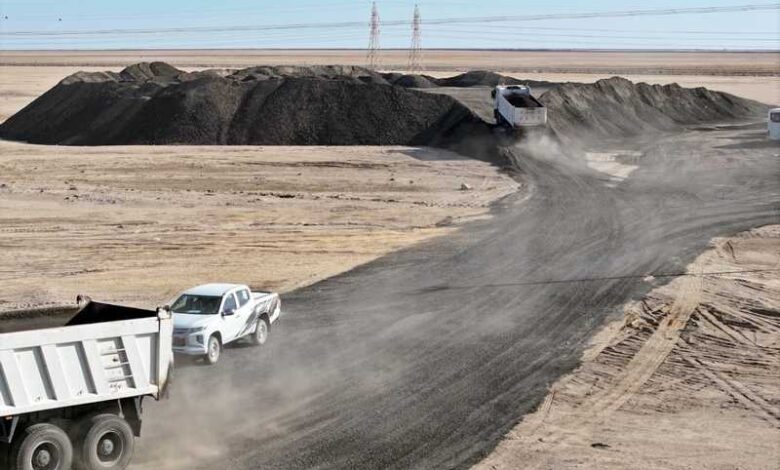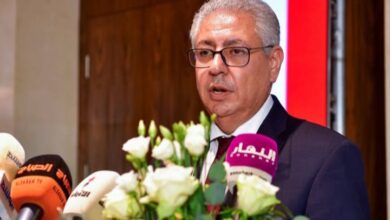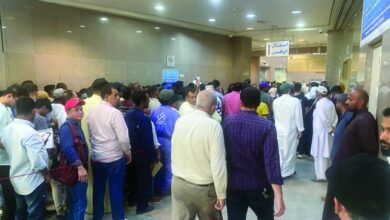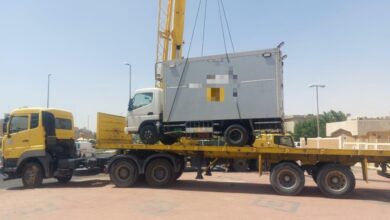“Kuwait Institute for Scientific Research” leads sustainability and recycling initiatives

At the third Gulf Forum for Sustainable Development and Project Management, the Kuwait Institute for Scientific Research (KISR) is showcasing its innovative projects focused on recycling and utilizing accumulated industrial waste, particularly from damaged tyres and asphalt resulting from road repairs and maintenance. These efforts aim to address the shortage of natural resources and promote sustainable circular economy practices. By turning waste into valuable resources, KISR is working to reduce the harmful environmental and health impacts of waste disposal, contributing to a cleaner, more sustainable future.
In this context, Dr. Faisal Salman Al-Humaidan, the Acting Director General of the Kuwait Institute for Scientific Research, emphasized that focusing on recycling and the sustainability of environmental resources is no longer an option, but a strategic necessity driven by global environmental challenges, particularly with rapid climate changes and the growing demand for natural resources.
Al-Humaidan further highlighted that the Kuwait Institute for Scientific Research is deeply committed to supporting the transition towards sustainable development. He noted that through its pioneering projects, the Institute has made resource sustainability and recycling a key focus, integrating it into the tenth strategic plan. This plan, implemented collectively by the research centers, aims to provide advanced solutions in areas such as renewable energy, water resources management, and the development of environmentally friendly building technologies.
The Third Gulf Forum for Sustainable Development and Project Management provides a crucial platform for adopting innovative engineering solutions and their practical applications. Also such initiatives are vital for achieving a more sustainable and secure future for the citizens of the Gulf States.
Eng. Suad Al-Bahr, Director of the Construction and Infrastructure Program, emphasized the significance of the initiative proposed by the Institute to the General Secretariat of the Supreme Planning Council a year ago, which focuses on the proper handling of asphalt waste from major road maintenance projects in Kuwait.
Al-Bahr cautioned that any delay in supporting this initiative could lead to severe economic and environmental repercussions, as the projects are already underway, and the accumulated waste is threatening to create an impending environmental disaster.
Furthermore, Al-Bahr remarked that they fear repeating the scenario of the waste cemetery, which they delayed addressing until it became a complex environmental dilemma. Immediate action is crucial to ensure that waste is properly treated and recycled in a way that guarantees sustainability and protects the environment.
Al-Bahr emphasized the significance of the advisory role played by the Institute, citing Cabinet Resolution No. 410 from the 18th meeting held on 5/27/2001, and Resolution No. 646/2.1 from the 20th meeting on 5/4/2015. These resolutions underline the importance of supporting the Institute’s role in coordinating with all government departments and agencies to meet their research, consultation, and study needs. The resolutions also stipulate that the Institute, as a national institution, must be involved in projects undertaken by international consulting firms for the benefit of government agencies.
In this context, Dr. Haya Al-Mutairi, head of the initiative and director of the Asphalt Roads Maintenance and Rehabilitation Project at the Kuwait Institute for Scientific Research, explained that the preparation of a comprehensive guide for road maintenance works with medium and light loads in Kuwait is essential. Modern technologies for handling asphalt waste rely on both cold and hot recycling on-site, which significantly reduces the need for transporting waste, along with minimizing the efforts and costs involved.
Al-Mutairi continued that these technologies enable the processing of used asphalt directly on-site, which helps reduce the carbon footprint and enhance project efficiency. Additionally, innovations such as pre-mixing techniques for recycled asphalt and the use of enhanced and stabilized materials improve the properties of the asphalt, making it suitable for reuse in various paving layers.
Importantly, Al-Mutairi urged all contracting companies to take advantage of the Kuwait Institute for Scientific Research’s expertise and advanced technical engineering solutions in asphalt recycling, emphasizing that these efforts would help reduce both environmental and financial costs. She also highlighted the importance of collaboration between the public and private sectors to develop effective waste treatment solutions, aligning with the strategic objectives of Kuwait Vision 2035.
Source: Al Qabas















